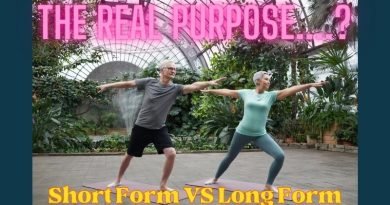How To Understand The Power Of The Virtue Journey
Yes, Virtues Can Be Attained And Developed. Here Is My Theorem
How To Recognise Your Virtues And Attain Additional Ones is actually the main thread of my system. If you are looking for self development, we certainly need to go there. ‘How To Understand The Power Of The Virtue Journey’ is therefore, a great pre-understanding point.
Virtues, whether we focus on them or not, they are a part of all of us. We have varying levels of power in each one. Some people are strong in some where others are weak, and vice versa. Which means, that we can map our virtues as a spectrum with levels of ability to demonstrate accomplishment in each. In fact I will be going further into this area, on another blog post. I will look at how, each of us has a virtue bar code, much like a form of personality bar code.
Virtues can be good or bad, such that if you can be generally patient or impatient. You can be generally calm or anxious. You can be patient or eager.
Now I know that some people believe that we are born with a virtue or born without a virtue, and we can’t change it. I strongly disagree with that and here is why.
Opportunity Knocks Your Door, Or You Knock It To Create The Opportunity – How To Understand The Power Of The Virtue Journey
In many respects, ‘Opportunity Knocks Your Door, Or You Knock It To Create The Opportunity’. This is one way to ‘How To Recognise Your Virtues And Attain Additional Ones’. I believe that we can all attain and develop virtues throughout our lives. In fact once we have them, we need to exercise them like a muscle in order to keep them healthy. Life presents opportunities to develop virtues, or you can create opportunities yourself, sometimes with some support from others, to find and develop a virtue.
Early Years
Christians believe that virtues are a gift from the Holy Spirit, and other religions have similar beliefs. This can be said to be true. Others believe that virtues come from your genes, and that you are born with a personality, that is strong in some virtues.. That is also true. But what about your child hood? Being exposed to certain situations as a part of what happens in your life when you are growing up, will bring out some good and bad virtues, and develop them for better or for worse, and that is also true.
Later Years
Through the natural passage of time, these virtues form into repeatable behaviours, which some people see as traits. This what I understand to be neuroplasticity in the brain, whereby the trait becomes more permanent as a form of naturally reoccurring response to something that happens in your life more than once.
Changing Up A Gear
If neuroplasticity can take virtues into being a natural, more common response, then it makes sense that deliberately changing our response, is a way to train new virtues into our personality? This is seen as re-programming our neuroplasticity.
So, to better understand how all of this works together, I am going to take you on a journey-like-story, to explain what I mean. This will help you to understand how to recognise your virtues and attain additional ones. This can be done, even if you have left childhood and moved into adulthood.
Origins Of A Child’s Virtues From The Holy Spirit – How To Understand The Power Of The Virtue Journey
Let’s say that a child is born into a religious family, and that family believes in baptism or a welcoming into the community as essential. Therefore, the priest blesses the child and asks the worshippers gathered to join in blessing the child. The blessing is with some qualities such as ‘patience’ and ‘kindness’. The parents tune into this, and play a strong part in the child’s upbringing. They remember to be patient with their child, and to demonstrate kindness. Therefore, the child naturally receives a gift of ‘patience’ and ‘kindness’ from a holy spirit, originating from the origins of their baptism.
Origins Of A Child’s Virtues Inherited From Genes – How To Understand The Power Of The Virtue Journey
This is an area more akin to following a mother, or following a father, or even following an earlier relative. It’s theory I understand, to be based on the notion that virtues are carried by genes transferred to the child by development before birth. It could also be the case that, traits in the child appear similar to a relative’s, and so through confirmation bias, we naturally assume that the child ‘follows’ that relative. This is the limit of my understanding of this aspect, so I’ll stop at this point on the subject of genes carrying virtues. If anyone can elaborate, I’d be grateful to hear more.
Origins Of A Child’s Virtues From Upbringing Or Circumstance – How To Understand The Power Of The Virtue Journey
Now let’s assume that, our child’s family or origin moves the family home to another part of the country due to work. The child has to move school, and make new friends. This happens several times in the child’s upbringing. If the child has a positive experience from this, they will develop a virtue which we would call ‘adaptability’. Later in life, the child becomes an adult who copes well with bigger changes in the foundation levels of ‘Maslow’s Hierarchy of Needs’ such as changing jobs, moving house, and other existential changes. It may still be stressful, but hey, they’ve come thorough this before, rather well.
Origins Of An Adult’s Virtues By Self Development – How To Understand The Power Of The Virtue Journey
So at this point many of you would say that our child is now fully grown and matured. Personality development has peaked, and bar some minor tweaks, they are who they are and people don’t change. I disagree, and I can articulate this by asking some straight forward questions.
Case 1- Education Milestone
Am I now the same person that I was when I left high school or University?
Answer? No of course your not? When I left University I was outgoing and spontaneous in terms of nightlife, but now, I am more ‘reserved through integrity’ and ‘content’, relaxing at home with my family.
Therefore we can say that in the first case, I flex my extrovert and spontaneity virtue muscles less often than I used to. Meaning that my levels here have lowered, although, with some work I could get back there. A change in lifestyle and circumstance, getting married and becoming a father, has allowed me to develop a virtue known as contentment, through relaxing with my family.
As this has been my life for almost 20 years, neuroplasticity has set these virtues firmly. Nevertheless, it is not set in stone. Neuroplasticity, can be reversed and remoulded.
Case 2- Employment Milestone
Am I now the same person that I was when I left my last job?
When I left my last job, I was doubting my own judgement, and was unable to stand by my belief of what needed to happen to make a project successful. This was despite actually having a great judgement as an accurate view on the bigger picture. Whereas, now that I am working for a business with an environment where I am trusted, I am far more assertive and believing in myself to a great degree of conviction. This not just in terms of my own belief in what my projects needs, but also socially too.
Being in an environment where, I can relax through being trusted, to do my job and make good judgement to steer my project team, has allowed me to become more confident in who I am. This new higher level of self belief, has fostered a much higher level of self ‘confidence’ and ‘conviction’. Therefore, when I give direction, or better still, when I grant autonomy and trust in my team, I boost my own ‘confidence’ and ‘conviction’ too.
Not Just Good Environmental Influence
I don’t see this second case, as purely environmental either. While I needed this employer’s wing to provide me with an environment in which to develop these great virtues, I can see that if was going back to a less favourable environment, in the future, I would carry my new virtues with me. Here I would either thrive and change the place for the better, or I would be beaten and need to retreat intact. Either way I would not allow myself to fall back to the old me.
Where Next For ‘How To Understand The Power Of The Virtue Journey’
I suggest that you do some more reading on these subject areas, then take a look below at out extensive virtue dictionary.
Over the course of time, we will populate the dictionary with or own definitions. In the meantime, please feel free to get in contact and interact with us on this article.
Further Reading Suggestions:
- Virtue Dictionary – Our blog post ‘If Ever There Was A Virtue Dictionary….
- 7 Heavenly Virtues
- 12 Catholic Virtues
- Aristotle’s Framework
- Others
Happy training
Namaste
Simon



